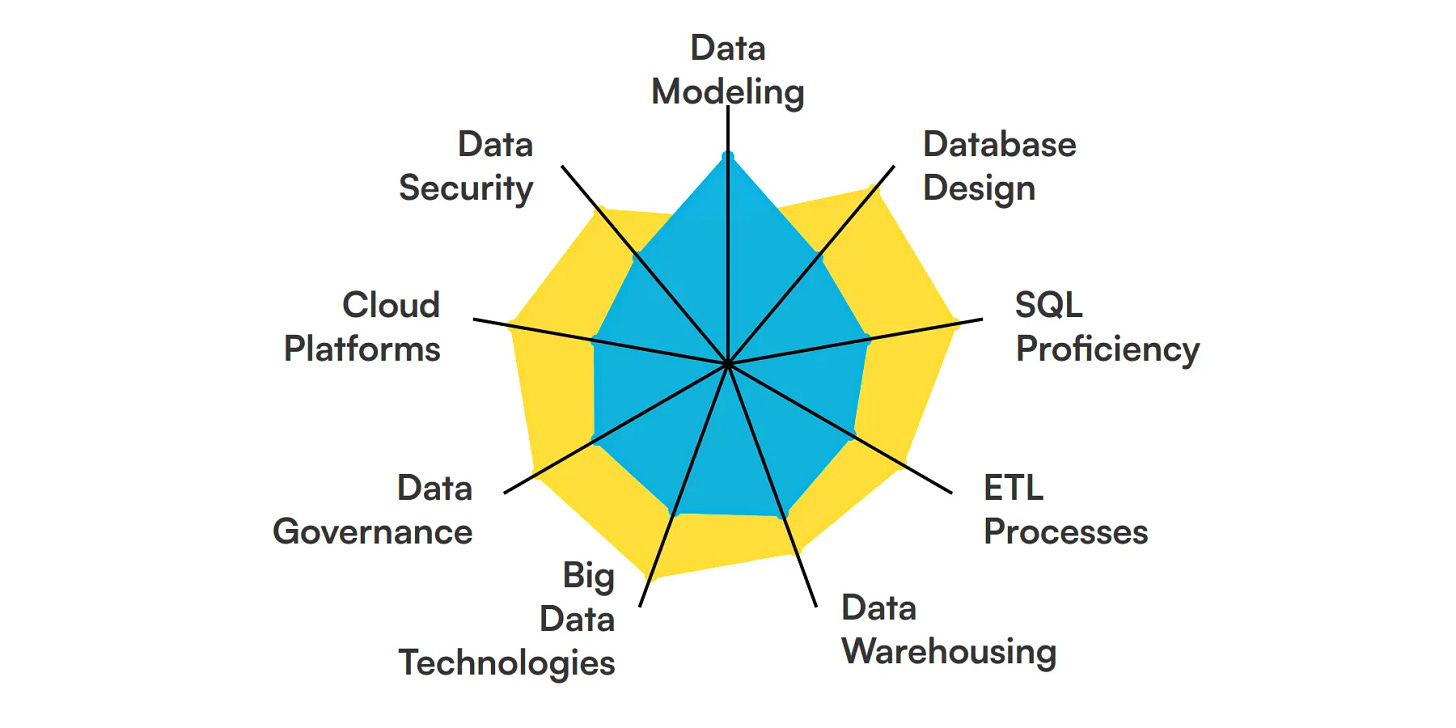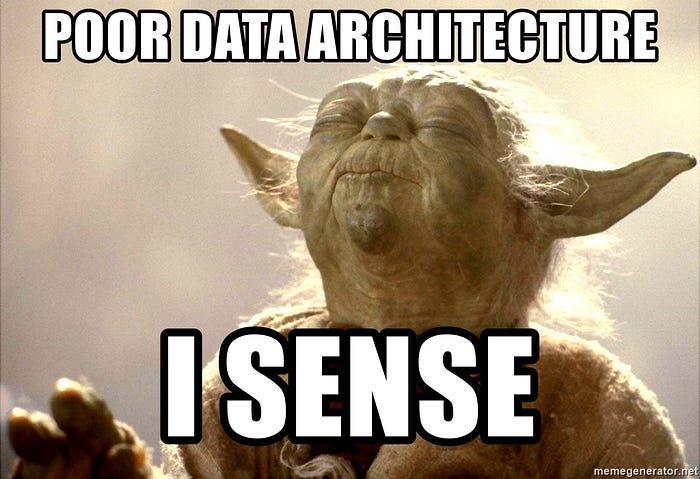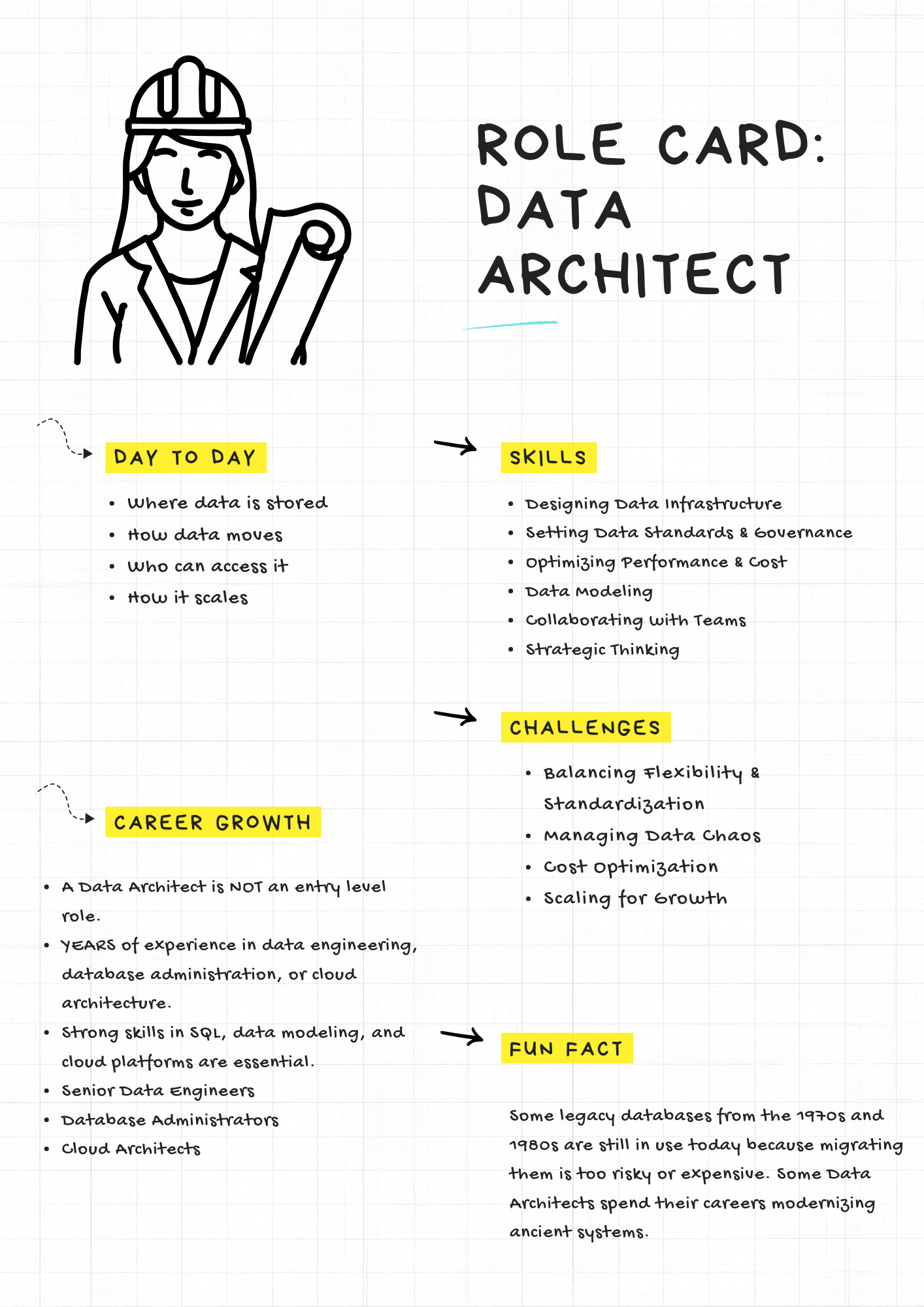The Data Career Compass (2/8): Data Architect & Systems Integration with Christina Kalimeri
The master planner of data ecosystems. In a world drowning in data chaos unstructured logs, siloed databases and compliance regulation. Data Architect is the visionary who brings order to the storm.
A Data Architect is responsible for designing the structure that allows businesses to manage, store, and process data efficiently. While Data Engineers focus on building and maintaining pipelines, Data Architects focus on the bigger picture, how data flows across systems, what tools should be used, and how to ensure scalability, security, and efficiency. It requires years of experience and high quality skillset to pick your battles wisely.
If data engineering is about constructing roads and bridges for data, data architecture is urban planning ensuring everything is designed for long term growth and usability.
In this episode of DataConscious – A Mindful Approach to Analytics, we dive into the world of Data Architecture. Our guest, Christina Kalimeri, provides all the necessary details on:
🎙 What it’s like to architect data solutions and integrate systems.
🎙 Her journey into the role: How she got started and what she learned along the way.
🎙 What her day to day actually looks like: Real talk about responsibilities, challenges, and wins. What the role actually does (beyond the job title)
🎙 The skills that truly matter: What she use daily vs. what’s often overhyped.
🎙 Career growth and industry trends: Where the role is headed and what aspiring professionals should know.
🎙 Honest advice for newcomers: What she wishes she had known before stepping into the role. How to transition into the role effectively.
Christina has extensive experience:
Identifying what needs to be done, in terms of business goals, in complex payments architectures.
In migrating core business solutions/applications within each other or in a centralised Data Warehouse. For her, trust me, migrating into a Data Warehouse is the fun part of the job.
Evaluating business analysis and collaborating with Banks, Fintech companies, Public Governance Authorities and several other vendors in huge scale projects.
Designing, developing and optimizing data systems: She creates robust database solutions by designing conceptual and logical data models, flowcharts, and optimized schemas.
Supporting software and application development: Analyzes structural requirements for new software and applications, integrate new components and enhance system performance through testing and troubleshooting.

Whether you're a data leader, engineer, BI professional, or decision-maker, this episode will help you navigate the evolving landscape of modern data architectures.
🎧 Listen now & subscribe for more insights on mindful data practices!
What Does a Data Architect Do?
A Data Architect’s job is to create a blueprint for an organization’s data infrastructure. They define:
Where data is stored (databases, data lakes, data warehouses)
How data moves (ETL/ELT processes, APIs, streaming pipelines)
Who can access it (security policies, governance frameworks)
How it scales (handling increasing data volumes, performance optimization)
Their work ensures that engineers, analysts, and business teams can use data effectively without running into bottlenecks, inconsistencies, or security risks.
Two main types of Data Architects
1️⃣ Those who design infrastructure for reporting and analytics needs – Their focus is on building data warehouses, data lakes, and ETL pipelines to support BI dashboards, machine learning models, and analytical queries.
2️⃣ Those who design infrastructure for real-time data flow between applications – Their job is to ensure multiple systems can communicate efficiently in real time. For example, if Systems 1, 2, and 3 need to exchange data, the architect will design a solution to facilitate this. This often involves an intermediary layer (e.g., an event-driven architecture using Kafka or a data hub) that collects, processes, and redistributes data among all systems to maintain synchronization.
These two approaches require different skill sets, but both are essential depending on business needs.
Real-World Example: E-Commerce Platform
Imagine an e-commerce company that collects user behavior, sales transactions, and product inventory data. The Data Architect would design:
✅ A real-time event streaming system (Kafka, Kinesis) to track customer actions on the website.
✅ A cloud-based data warehouse (Snowflake, BigQuery, Redshift) to store transaction data for analysis.
✅ A data governance policy ensuring only authorized teams can access sensitive payment data.
✅ A scalable architecture that supports high traffic during peak sales (Black Friday).
🛠 Skills - Tools - Key Responsibilities
Hard Skills
1. Designing Data Infrastructure
Choosing between data lakes (S3, Delta Lake) vs. data warehouses (Snowflake, BigQuery, Redshift)
Deciding between batch processing (dbt, Airflow) vs. real-time processing (Kafka, Flink)
Managing cloud environments (AWS, Azure, GCP)
2. Setting Data Standards & Governance
Defining data models (Star/Snowflake/Data Vault/3NF schema for warehouses)
Implementing access control (RBAC, IAM roles)
Ensuring compliance with GDPR, HIPAA, SOC 2
3. Optimizing Performance & Cost
Indexing & partitioning strategies for faster queries
Data lifecycle management (archiving old data to reduce costs, hot/cold storage)
Query optimization (Snowflake’s automatic clustering, BigQuery’s partition pruning, Databricks Spark techniques)
4. Collaborating with Teams
Working with Data Engineers to ensure pipelines match the architecture
Assisting Data Scientists by structuring data for ML models
Supporting Business Intelligence teams with well organized datasets
Soft Skills
Strategic Thinking: Ability to align data infrastructure with business needs.
Communication: Clear articulation of data architecture decisions to both technical and non-technical stakeholders.
Problem-Solving: Ability to anticipate and address data-related challenges before they arise.
Collaboration: Working effectively with cross-functional teams.

Challenges Faced by Data Architects
1️⃣ Balancing Flexibility & Standardization: Companies want flexible data solutions, but too much flexibility leads to chaos. Architects must set clear standards while allowing teams to innovate.
2️⃣ Managing Data Chaos: As organizations adopt data lakes, warehouses, real-time streaming, and microservices, keeping track of all data assets is challenging. Metadata management tools like Data Catalogs (Select star, Unity Catalog etc) help.
3️⃣ Cost Optimization: Cloud storage and compute costs can skyrocket if not managed properly. Architects must balance on-demand vs. reserved instances, cold vs. hot storage, and query efficiency.
4️⃣ Scaling for Growth: A system that works for 10 TB of data may not work at 500 TB. Architects need to plan for horizontal scaling (distributed databases) and vertical scaling (query optimization, caching).
📈 Career growth opportunities and salary expectations
Data Architects are in high demand as organizations increasingly rely on data for decision making. According to industry reports, salaries for Data Architects vary based on experience and location, but they generally range from $120,000 to $180,000 per year in the US, with senior roles exceeding $200,000.
How This Role is Evolving
🚀 Data Mesh & Decentralization: Companies are moving away from monolithic data warehouses and embracing domain driven architecture, where teams own their data.
⚡ Real-Time & Event-Driven Data: More companies are replacing batch processing with real-time analytics. Kafka, Flink are gaining traction.
🛠 AI-Driven Automation: Architects are leveraging automated data modeling, governance, and cost optimization tools to reduce manual work. Tools: Monte Carlo (Data Observability), dbt Cloud, Dataplex
Who Should Consider This Role?
A Data Architect is NOT an entry level role. It requires YEARS of experience in data engineering, database administration, or cloud architecture. Strong skills in SQL, data modeling, and cloud platforms are essential.
This role is ideal for:
✅ Senior Data Engineers who enjoy designing long-term solutions
✅ Database Administrators looking to expand into cloud and big data systems
✅ Cloud Architects who want to specialize in data infrastructure
If you enjoy solving complex data problems, designing scalable systems, and working at the intersection of technology and business, this could be the right career move.
🎙 What the Data Pros Say
Beyond the technical breakdowns, you’ll hear from experienced professionals in each role. Through our ‘What the Data Pros Say’ section, we’ll bring you firsthand insights from people actively working in the field. Thanks to everyone for contributing :)

Starting my career as a mechanical engineer in the manufacturing industry, I was intrigued by the value of leveraging data and the hidden, untapped potential it could provide. Wanted to learn more about the magic power that data could offer I transitioned, at first, into software and data engineering roles and then eventually evolved into a data architect.
Data architect role is surely demanding, requiring a wide variety of skills. However, this also ensures that it never gets boring, as it involves a diverse range of responsibilities. Some things learned from my experience are:
Technical excellence, continuous learning, and visionary thinking are essential,
as decisions must be made regarding data engineering solutions, cloud infrastructure, and the implementation of data governance.
As the data architect has to communicate with a number of technical teams like cloud engineers, cyber security or business teams that provide requirements, crucial for the success of the role are communication skills and stakeholder management.
Basic element of the role is providing leadership to data engineers so emotional intelligence and motivation are necessary for the success of the enitre data team.
Long story short:
A well designed data architecture is the difference between a scalable, efficient data ecosystem and a slow, unreliable mess. Data Architects shape how organizations use data, and their decisions impact everything from business intelligence to AI-driven products.
In a nutshell…
Additional material:
https://www.snowflake.com/trending/data-architects/
https://www.simplilearn.com/data-architect-article
https://www.reddit.com/r/dataengineering/comments/1d64ht9/what_does_a_data_architect_actually_do/
Great engineering starts with great awareness. Be mindful, be DataConscious.
❤️ Liked this article? Make sure to push the button
💬 Community needs your voice, do you have something to add? Feel free to
🔁 Know someone that would find this helpful? Feel free to share





